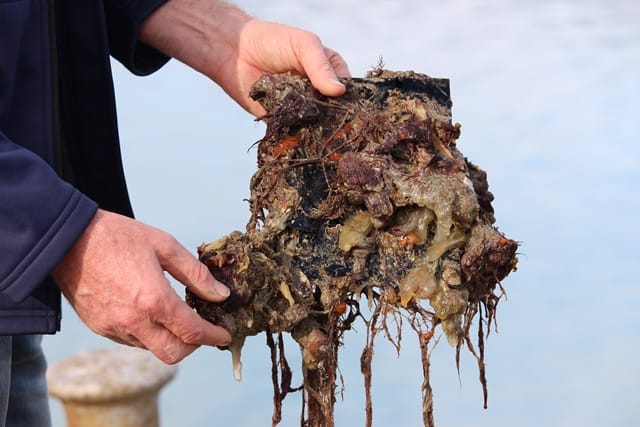Cawthron to lead new marine biosecurity research
24 September 2019
Cawthron Institute has welcomed news that one of its research programmes will receive $10.5m in government funding over the next five years to develop a marine biosecurity ‘toolbox’ to effectively transform the way marine pests are managed in New Zealand.
The project team was announced last week as one of 71 successful recipients of the Ministry of Business, Innovation and Employment’s Endeavour Fund, which invests in excellent research that has the potential to positively impact New Zealand economically, environmentally, and socially.
The Cawthron-led research programme is a collaborative initiative that brings together a multidisciplinary science team comprising New Zealand (Scion Research, universities of Otago and Auckland) and international science organisations (Deakin, Macquarie and Durham universities). The programme is designed around end-user needs and will be in partnership with councils from northern to southern New Zealand, central government agencies, Māori and the maritime and aquaculture industry.
Cawthron Institute Programme co-lead Oliver Floerl says that he is delighted by the funding announcement and by the flow-on impact the research will have, in terms of the benefits it will provide to New Zealand.
“This research project received crucial and enthusiastic support from key organisations, such as regional councils, MPI and DOC and iwi/hapū. Without that support we would not have been successful in securing funding. With that groundswell of support underpinning our work we are now poised to use high-quality science to solve real and wide-ranging issues that are having a significant impact throughout New Zealand.
“The arrival and spread of marine non-indigenous species around New Zealand is causing irreversible changes to our native ecosystems, threatens cultural and spiritual values, and is a costly nuisance for kaitiaki, the general public, government agencies and industries to manage,” says Juliane Chetham of Patuharakeke Te Iwi Trust.
“Despite significant operational marine biosecurity expenditure the domestic spread of marine pests and pathogens is ongoing,” says Floerl. “There is a need for radical, new, effective and integrated technologies to limit the spread of non-indigenous species around New Zealand’s coastal environments and industries.
“We are inspired by the tremendous end-user support for this programme and look forward to working in close collaboration with those end users, such as Councils, to ensure that the outputs we deliver meet their needs and expectations and that we are establishing robust pathways for them to implement our findings.”
Phil Brown, Biosecurity Manager for Auckland Council, says the councils is pleased to be part of developing this significant biosecurity toolbox. “We are thrilled to support this collaborative research. It’s imperative that we develop the tools required to protect our marine ecosystems in the same way we have been able to protect the ecosystems on the land”.
Cawthron Institute Programme co-lead Anastasija Zaiko says that the research programme will deliver workable solutions ranging from proactive pest prevention to interactive software-based applications.
“This is an opportunity to work with a team of outstanding marine biologists, ecologists, modellers, engineers, Mātauranga Māori practitioners, economists and material and social scientists from New Zealand and overseas to deliver a practical, fit-for-purpose toolbox for better, proactive biosecurity management,” says Zaiko.
“This will include ways to make high-risk surfaces and environments in our marinas, ports and harbours unwelcoming for marine pests. This will proactively disrupt the invasion process and help restore native species in these environments. We’ll also be harnessing the power of molecular technologies to revolutionise our ability to detect invasive species early, and to develop a domestic pathway model that will allow scenario modelling and the development of optimised mitigation strategies.”
A collaborative approach, not only to the research but also to the deployment of solutions is crucial, says Zaiko.
“By bringing together regulators, iwi/hapū, industry, and our wider society through this programme, we will provide biosecurity practitioners with the technical knowledge and understanding necessary to implement real change. We can then break the cycle of marine pest incursion and proliferation. This will take our ability to protect our marine ecosystems and industries to a whole new level.”
